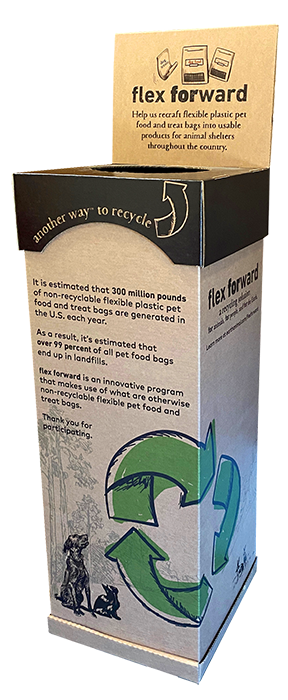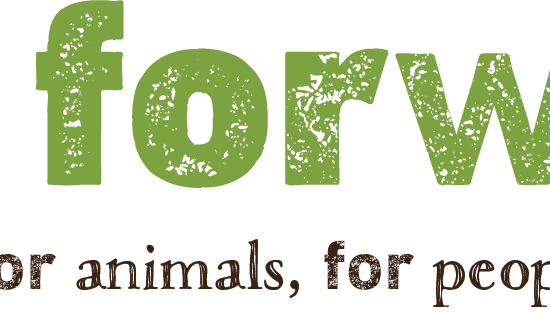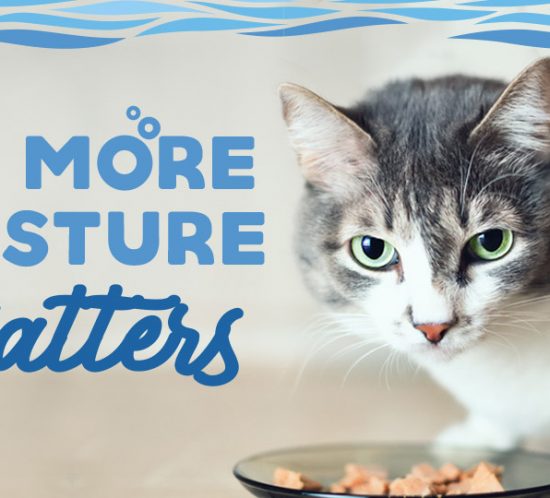The Flex Forward recycling pilot program met its collection goal
 We are no longer collecting bags for the Flex Forward program.
We are no longer collecting bags for the Flex Forward program.
However, this is very good news!
Thanks to our customers’ participation, we have collected enough empty packaging for this project to proceed to the next phase of the pilot program. The collected flexible packaging will be ground into pellets to be reused by the plastics industry for a variety of purposes. Some of the recycled packaging will be used to manufacture new test pet products, including crates, toys, and litter boxes. The ultimate goal is to create a fully closed-loop recycling solution for plastic pet packaging, preventing plastic packaging from ending up in landfills and instead, using it to produce new products.
All The Best is happy to have had the opportunity to team up with Earth Animal (the maker of the beloved No-Hide chews, among other products), the Pet Sustainability Coalition, and Pet Food Express in this pilot program aimed at reducing the estimated 300 million pounds of plastic pet food packaging that goes to landfills each year.
We share our customers’ commitment to sustainability. Your participation helped make the campaign a success and may be pivotal in establishing a larger, national Flex Forward recycling program.


